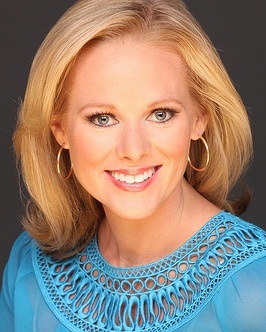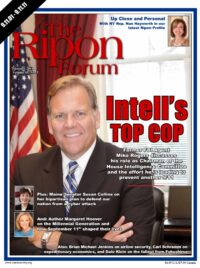
On September 11, 2001, nineteen men hijacked four commercial airplanes, transforming them into missiles that murdered thousands of innocent civilians on American soil. These attacks were a defining moment in the lives of millennials – so named because they are the first generation to come of age in the new millennium. In the same way that the attack on Pearl Harbor is imprinted upon the Greatest Generation, and the Kennedy assassination impacted the Baby-Boomers, 9/11 has shaped the worldview of the millennial generation.
On that fateful morning, the oldest millennials were seniors in high school, while the youngest were just infants. For the first time in their lives, they were confronted with the fact that their government and their parents were not in control. Osama bin Laden became a household name, and to the youngest millennials he was the incarnation of their worst fears. In an instant, these young Americans realized that their country wasn’t invulnerable, and that there were forces of evil in the world bent on eliminating America’s hard-won freedoms.
Three defining features of the millennials, as identified by experts who study generational trends and characteristics, were, I suspect, strongly influenced by the impact of 9/11.
First, hyper-partisanship in our politics turns millennials off. In the critical days and weeks after 9/11, as the country went to war against the Taliban and Al Qaeda in Afghanistan, it did so purposefully and with a united front. Millennials noticed that, when it mattered most, political leaders set aside partisan interests. Millennials drank deeply from this spirit of national unity, and it remains a defining feature of their generation. As a presidential candidate, Barack Obama channeled this generational ethos when he spoke of transcending partisan differences in a country with no blue states or red states, only the United States of America. While unity in a time of war is imperative, and while it would be unreasonable to expect the country’s leaders to remain united forever, millennials nonetheless expect their leaders to express principled disagreements respectfully, and they dislike when politicians demonize and demagogue their political opponents.
Millennials place a premium on public service.
Second, millennials place a premium on public service. I think this is almost certainly a result of the gratitude and reverence showered on the heroes of 9/11 and its aftermath: most visibly our firefighters and our men and women in the military. Millennials volunteer more frequently than any other generational cohort, with 60 percent saying they’ve volunteered within the past year, and 83 percent of entering college freshmen having volunteered regularly in high school. I think the outpouring of community spirit associated with 9/11 goes a long way toward explaining why the millennial generation is one that values public service.
Finally, millennials have a positive view of government. They do not tend to see it as part of the problem, to paraphrase Ronald Reagan’s famous line. According to the Pew Research Center, impressions about government, once solidified in a generation, tend to endure. While there is no clear evidence that directly links the events of 9/11 to this generally positive view of government, I surmise that these attitudes took hold as a result of seeing the U.S. government act decisively in response to the 9/11 attacks. Young people saw that when America was in danger, the country – its citizens, its government, and its armed forces – could rise to the challenge and get urgent tasks done quickly and decisively in order to meet the threat. Thus it was no surprise to see young Americans flood the streets in celebration on the night of May 1-2, 2011, upon hearing the news that our heroic Navy Seals had killed Osama bin Laden in his Pakistani hideout. For young Americans as much as anyone, the success of the mission to eliminate bin Laden demonstrated a hard earned American triumph, and it was an outpouring of patriotism from the 9/11 generation that good defeats evil, and in the end, America wins
Young people saw that when America was in danger, the country – its citizens, its government, and its armed forces – could rise to the challenge and get urgent tasks done quickly and decisively in order to meet the threat.
The Republican Party should consider the impact of 9/11 on millennials, especially as we march into the 2012 presidential contest and hope to connect with this rising generation. There is urgency for understanding and harnessing their enthusiasm now, as experts demonstrate that partisan identity solidifies in new generations after three presidential election cycles. Since the Millennials voted for John Kerry in 2004, and Barack Obama in 2008, we Republicans have fifteen months to make our case that the policies of the Republican Party are best suited to the interests of the millennial generation. When it comes to fiscal responsibility and national security, we have the answers. Now is our chance, to boldly make our case to the 9/11 generation.
Margaret Hoover is a Fox News commentator and author of the book,American Individualism: How a New Generation of Conservatives Can Save the Republican Party. She previously served as an aide in the George W. Bush Administration.




